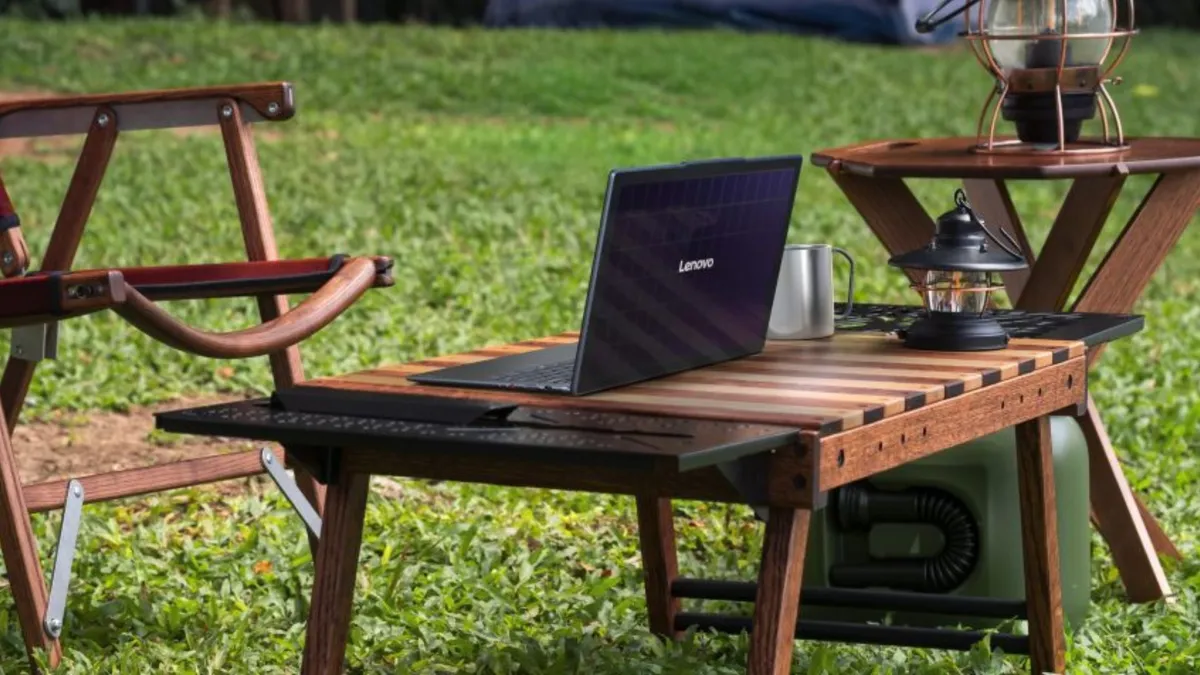
Lenovo has ignited significant excitement in the tech community with its innovative solar-powered laptop concept, hinting at a future where the sun serves as a primary power source. This cutting-edge device, aptly named the Yoga Solar PC, was recently showcased at the Mobile World Congress in L’Hospitalet de Llobregat, Barcelona, Spain. As sustainability becomes an increasing priority, Lenovo's proof-of-concept aims to redefine how we think about energy consumption in personal computing.
The Yoga Solar PC incorporates a solar panel directly into its lid, making it a standout in the laptop market. Lenovo proudly claims this device to be the “world’s first ultraslim solar-powered PC,” featuring an impressive thickness of just 15mm and a lightweight of 1.22kg (approximately 2.29 pounds). Notably, while Lenovo is making strides in solar technology, it’s worth mentioning that the Samsung NC215S, released in 2011, was the first laptop to utilize solar power.
Currently, the Yoga Solar PC remains a concept with no confirmed production timeline. According to Lenovo’s press statement, the device is designed to bridge the gap between functionality and environmental awareness, symbolizing the company's vision for a future where renewable energy and innovation coexist harmoniously.
The innovative solar panel of the Yoga Solar PC employs 84 back-contact solar cells, strategically placed to maximize light capture by placing all electrical connections behind the cells. This advanced design achieves a sunlight-to-electricity conversion rate exceeding 24%, which Lenovo claims is one of the highest rates in the industry. Although this efficiency surpasses traditional silicone-based panels commonly found in consumer electronics, it still falls short compared to perovskite-enhanced panels, which can reach efficiencies of up to 43%.
Lenovo asserts that just 20 minutes of direct sunlight can provide up to an hour of video playback. However, the company is still in the process of researching the panel’s efficacy in low-light conditions. The device is equipped with a state-of-the-art Dynamic Solar Tracking system that continuously monitors the solar panel's current and voltage, optimizing energy capture. This data works in conjunction with the Solar-First Energy system to adjust the charger's settings, ensuring that harvested energy is prioritized for the laptop’s use. Remarkably, even in low-light environments, the solar panel can continue to generate power, keeping the battery charged during inactive periods.
In terms of specifications, the Yoga Solar PC boasts a powerful Intel Lunar Lake processor, 32GB of RAM, and 1TB of storage, all complemented by a stunning 14-inch OLED screen. The ultra-thin design is tailored for optimal solar energy intake, whether indoors or outdoors. Even when resting on a desk, the Yoga Solar PC can passively recharge its battery using indoor lighting, although it performs best when exposed to natural sunlight. This solar charging capability acts as a valuable backup when traditional power outlets are unavailable, though a full charge is contingent on prolonged good weather.
In addition to the Yoga Solar PC, Lenovo has introduced a concept external solar power kit for existing Yoga laptop users. This portable kit resembles a book and unfolds to reveal two solar panels, allowing users to directly charge their devices via USB-C or charge a power bank. While Lenovo is still evaluating the production of the Yoga Solar PC, the company is committed to expanding its portfolio of innovative devices.
In the meantime, Lenovo is gearing up to release the ThinkBook Plus Gen 6 in June 2025, a 2023 concept featuring a rollable OLED display, with a price tag of $3,499. Jun Ouyang, Lenovo’s Senior Vice President, stated in a press release, “With the announcement of innovations like the Yoga Pro 9i Aura Edition, the IdeaPad Slim 3x, and the Lenovo Yoga Solar PC Concept, Lenovo has delivered a suite of new devices and proofs of concept that empower end users to let their creativity shine, their ‘process’ unbounded by the processing of their PC thanks to AI-powered innovation.”